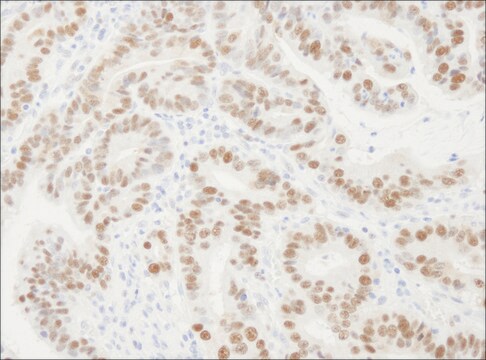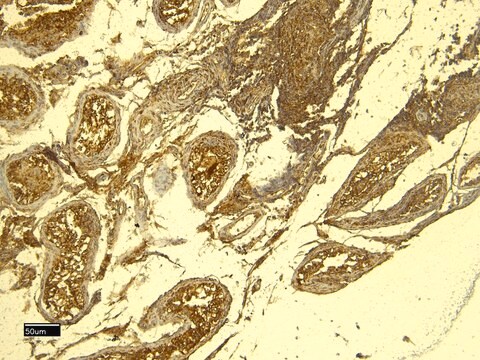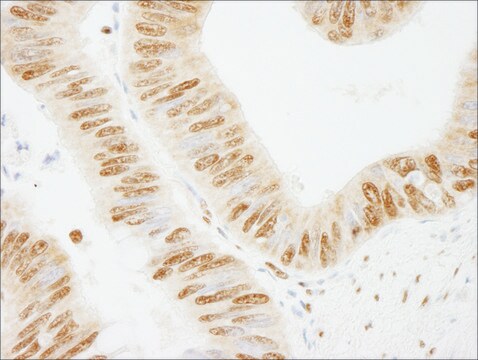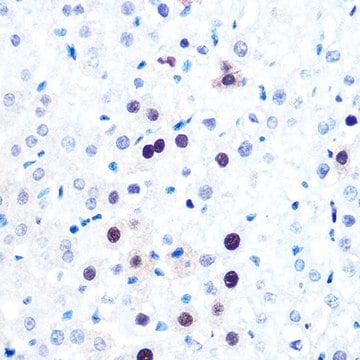PLA0292
Goat anti-RNA Polymerase II Antibody, Affinity Purified
Powered by Bethyl Laboratories, Inc.
Sinónimos:
220kDa, DNA-directed RNA polymerase II largest subunit, DNA-directed RNA polymerase II subunit A, DNA-directed RNA polymerase III largest subunit, POLR2, POLRA, RNA polymerase II 220 kd subunit, RNA polymerase II subunit B1, RNA-directed RNA polymerase II subunit RPB1, RPB1, RPBh1, RPO2, RPOL2, RpIILS, hRPB220, hsRPB1, polymerase (RNA) II (DNA directed) polypeptide A
About This Item
WB
western blot: 1:1,000- 1:5,000
Productos recomendados
biological source
goat
Quality Level
antibody form
affinity purified immunoglobulin
antibody product type
primary antibodies
grade
Powered by Bethyl Laboratories, Inc.
species reactivity
human, mouse
concentration
1 mg/mL
technique(s)
immunoprecipitation (IP): 2- 10 μg/mg
western blot: 1:1,000- 1:5,000
accession no.
NP_000928.1
shipped in
wet ice
storage temp.
2-8°C
target post-translational modification
unmodified
Gene Information
human ... POLR2A(5430)
Immunogen
Physical form
Other Notes
Disclaimer
¿No encuentra el producto adecuado?
Pruebe nuestro Herramienta de selección de productos.
Storage Class
12 - Non Combustible Liquids
wgk_germany
nwg
flash_point_f
Not applicable
flash_point_c
Not applicable
Elija entre una de las versiones más recientes:
Certificados de análisis (COA)
¿No ve la versión correcta?
Si necesita una versión concreta, puede buscar un certificado específico por el número de lote.
¿Ya tiene este producto?
Encuentre la documentación para los productos que ha comprado recientemente en la Biblioteca de documentos.
Nuestro equipo de científicos tiene experiencia en todas las áreas de investigación: Ciencias de la vida, Ciencia de los materiales, Síntesis química, Cromatografía, Analítica y muchas otras.
Póngase en contacto con el Servicio técnico








